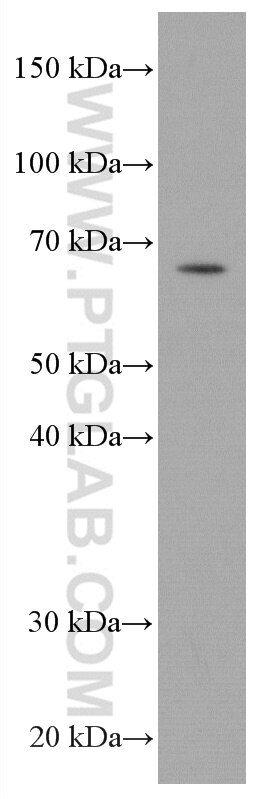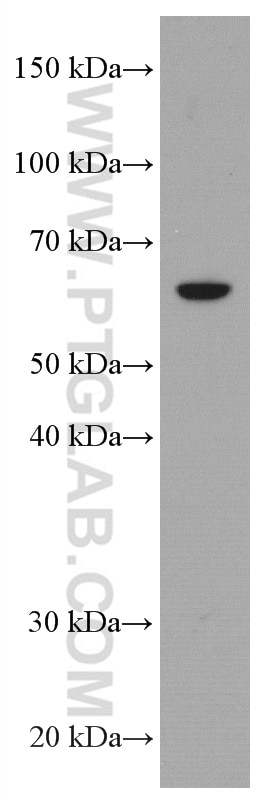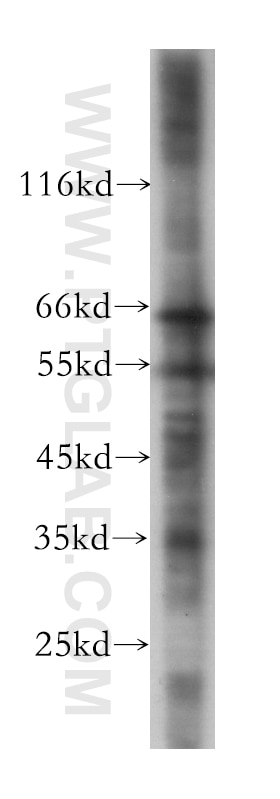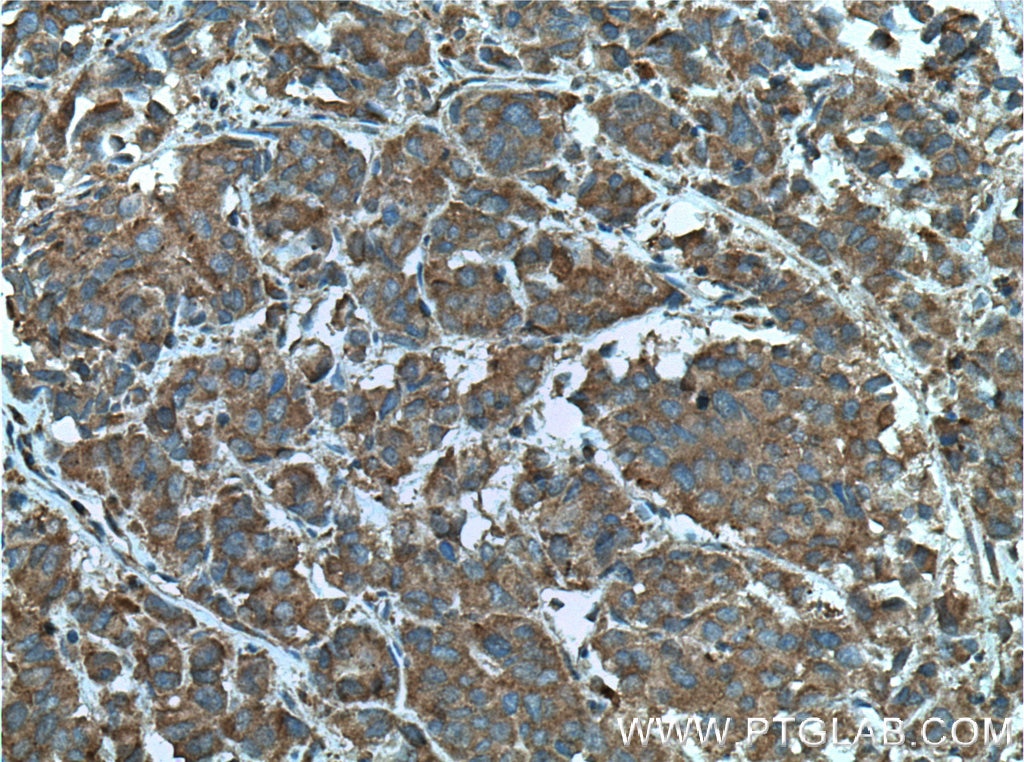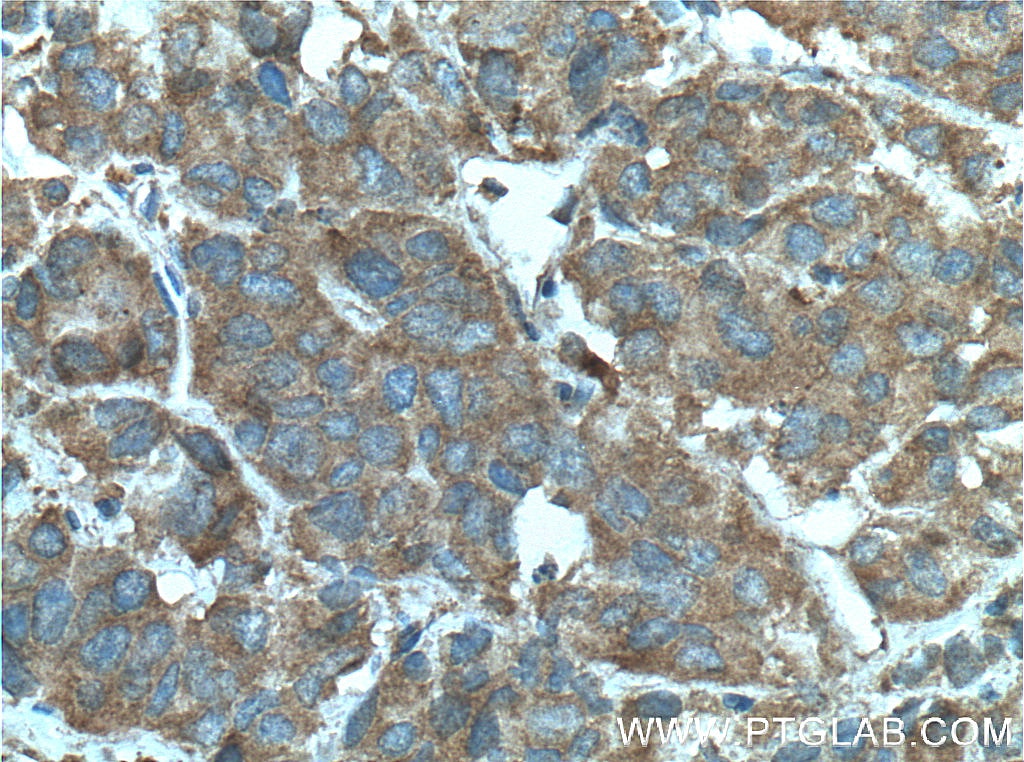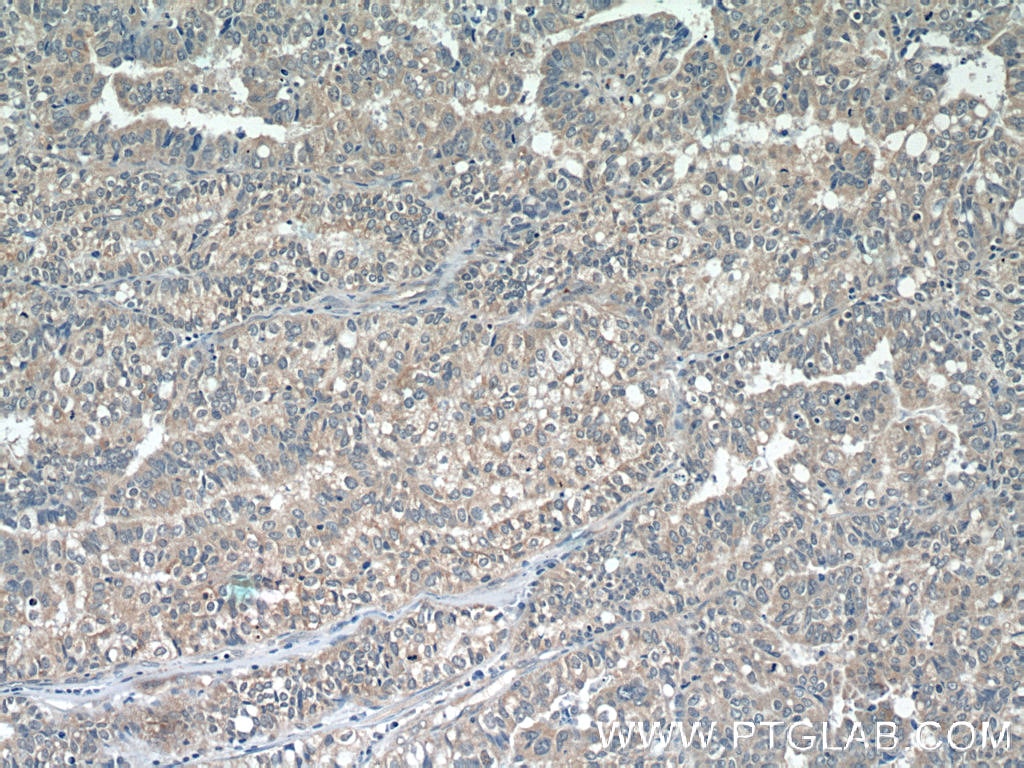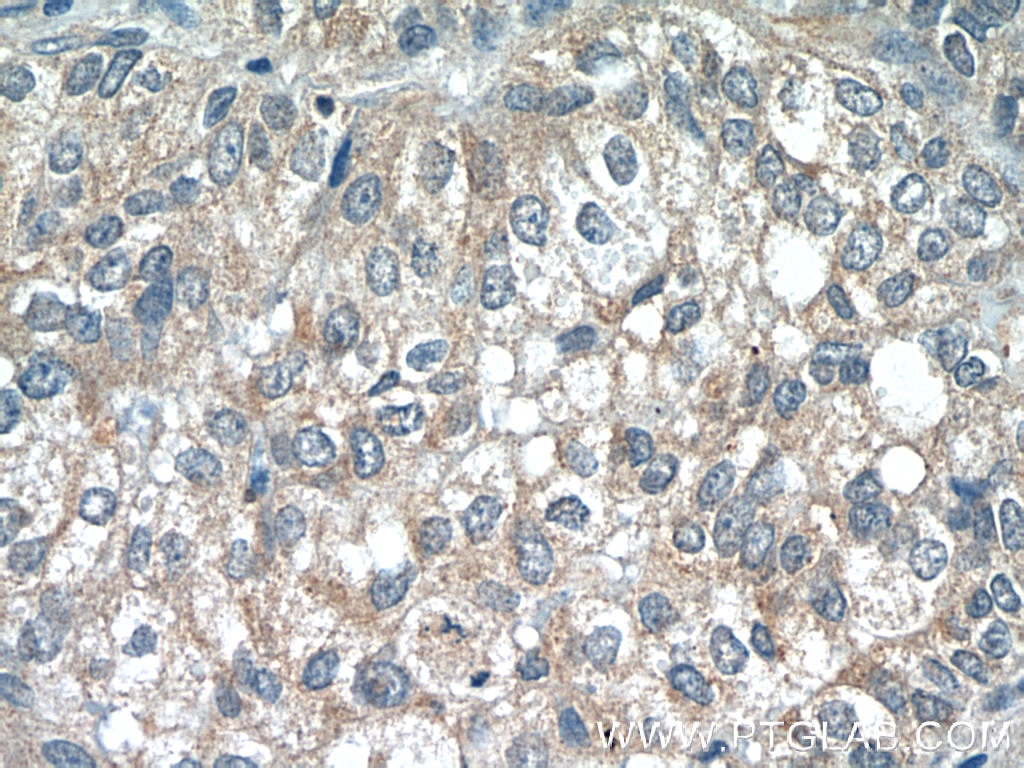Validation Data Gallery
Tested Applications
| Positive WB detected in | HSC-T6 cells, Jurkat cells, PC-3 cells |
| Positive IHC detected in | human prostate cancer tissue, human breast cancer tissue Note: suggested antigen retrieval with TE buffer pH 9.0; (*) Alternatively, antigen retrieval may be performed with citrate buffer pH 6.0 |
Recommended dilution
| Application | Dilution |
|---|---|
| Western Blot (WB) | WB : 1:500-1:1000 |
| Immunohistochemistry (IHC) | IHC : 1:50-1:500 |
| It is recommended that this reagent should be titrated in each testing system to obtain optimal results. | |
| Sample-dependent, Check data in validation data gallery. | |
Product Information
60125-1-Ig targets RABEP2 in WB, IHC, ELISA applications and shows reactivity with human, rat, pig samples.
| Tested Reactivity | human, rat, pig |
| Host / Isotype | Mouse / IgG1 |
| Class | Monoclonal |
| Type | Antibody |
| Immunogen |
CatNo: Ag6197 Product name: Recombinant human RABEP2 protein Source: e coli.-derived, PET28a Tag: 6*His Domain: 1-299 aa of BC058900 Sequence: MAAAAPVAADDDERRRRPGAALEDSRSQEGANGEAESGELSRLRAELAGALAEMETMKAVAEVSESTKAEAVAAVQRQCQEEVASLQAILKDSISSYEAQITALKQERQQQQQDCEEKERELGRLKQLLSRAYPLDSLEKQMEKAHEDSEKLREIVLPMEKEIEELKAKLLRAEELIQEIQRRPRHAPSLHGSTELLPLSRDPSPPLEPLEELSGDGGPAAEAFAHNCDDSASISSFSLGGGVGSSSSLPQSRQGLSPEQEETASLVSTGTLVPEGIYLPPPGYQLVPDTQWEQLQTEM 相同性解析による交差性が予測される生物種 |
| Full Name | rabaptin, RAB GTPase binding effector protein 2 |
| Calculated molecular weight | 64 kDa |
| Observed molecular weight | 62 kDa |
| GenBank accession number | BC058900 |
| Gene Symbol | RABEP2 |
| Gene ID (NCBI) | 79874 |
| RRID | AB_2284821 |
| Conjugate | Unconjugated |
| Form | |
| Form | Liquid |
| Purification Method | Protein G purification |
| UNIPROT ID | Q9H5N1 |
| Storage Buffer | PBS with 0.02% sodium azide and 50% glycerol{{ptg:BufferTemp}}7.3 |
| Storage Conditions | Store at -20°C. Stable for one year after shipment. Aliquoting is unnecessary for -20oC storage. |
Background Information
RABEP2, also named as RABPT5B, plays a role in membrane trafficking and in homotypic early endosome fusion. It has two isoforms with MW 59-63 kDa.
Protocols
| Product Specific Protocols | |
|---|---|
| IHC protocol for RABEP2 antibody 60125-1-Ig | Download protocol |
| WB protocol for RABEP2 antibody 60125-1-Ig | Download protocol |
| Standard Protocols | |
|---|---|
| Click here to view our Standard Protocols |

